



Israel, Hezbollah: Has deterrence worked? YES Undoubtedly, a big YES.
Syria, Hizbullah: Deterrence has never ever worked so far..., since Asef SHAWKAT is the Chief Architect of the assassination of Imad F. MOUGHNIEH in Damascus last year, Feb. 12th 2008....and Asef Shawkat is the one who handed to CIA and DIA on a silver platter....."Ali Musa Daqduq, a leading Hezbollah figure, who is one of the most professional leaders in Hezbollah...."....and Hassan Nasrallah knows that fact very well....
So, despite the gruesome killings of 27 Hizbullah fighters by Syria's killer Ghazi Kanaan in the 80s/90s and his cruel "jogging" through the same neighborhood the very next day, to thumb Hizbullah's nose... Hizbullah never felt the need to retaliate against Ghazi Kanaan then, and it won't feel the need to do so now in this Geoplotilical context.... "Geoplotilical" mis-spelled on purpose here....so the west and Israel can take a deep breath and go on with their usual and well known Geoplotical games...
Asef Shawkat went as far as to trigger the various fake missiles fired from South Lebanon at Israel during the Gaza war... in order to try to push the Israelis into retaliating against Hizbullah to tame them some more....
We know excatly what the odious criminal Syrian mafiosi regime is capable of...and we know exactly what the criminal gangs of the Syrian Military Intelligence assassins have been and still are doing today in Lebanon...in association with the Leb. military intelligence...working on behalf of the odious White House Murder Inc, for years.
If Hizbullah wants to create further deterrence... the address is Damascus Syria for the very big operation to come... targeting the criminal organization of the Siamese twins: The white house murder inc, and its CEO in the Levant Asef Shawkat and Maher ASSAD..., working in Tandem with CIA/DIA/MOSSAD/AMAN/DGSE/MI6....
.... وأضاف "اننا وفي المستقبل اذا ما استمرينا في خيار المقاومة، نحن لن ننفذ عملية واحدة خارج ارضنا اللبنانية، لكن لن نقبل بعد اليوم ان يرتكب العدو اي اعتداء على ارضنا او اي منشأة من منشآتنا، او على اي انسان على ارضنا دون ان يدفع ثمن اعتدائه ويلقى الرد المناسب. وبهكذا خيار نحفظ سيادتنا ومنعتنا وكرامتنا"
وتابع: "نحن اليوم حين نجد دول الغرب تطرق ابوابنا تباعا من اجل ان تحاورنا انما تفعل ذلك لان مصالحها باتت تقتضي ذلك، فحين تكون مصلحتها مع اسرائيل ستقف الى جانب اسرائيل ضدنا واذا كانت مصلحتها معنا ستحاول ان توفق بيننا وبين الاسرائيليين، لكن اميركا لا تتخلى في سياستها الخارجية، رغم كل ما نشهده في النبرة الديبلوماسية والخطاب السياسي للادارة الجديدة وفي طرق ابواب الحوار مع دول الممانعة اليوم، لم نشهد اي تغير في علة ان الادارة الاميركية ستتخلى عن ثابتة واضحة في سياستها الخارجية الا وهي دعم الكيان الصهيوني والتزام أمن هذا الكيان، وهذه الثابتة هي التي تحكم سياسات وتصرفات الولايات المتحدة في الخارج، وهناك ثابتة اخرى هي كيف تحفظ الممرات الآمنه لتدفق النفط العربي على مصانع الدول الاوروبية والاميركية"
....
As anniversary of Hezbollah commander Mughniyah's assassination looms, Israel tightens security.
By HK
| 
|
| Hezbollah's leader, seen by video last month in Beirut, says it is 'necessary' to respond to commander Mughniyah's killing. |
BEIRUT, Lebanon - When Imad Mughniyah, Hezbollah's top military commander, was assassinated by a car bomb in Damascus one year ago, the militant Shiite group blamed Israel – which denied involvement – and vowed revenge. But a year on, that vow remains unfulfilled, because Hizbullah knows very well that Asef Shawkat is the Assassin in Chief and the Architect in chief of Imad Moughniah's assassination...which was "sold" through the White House Murder INC, for plenty of good will at the upcoming tribunal ....headed by CASSISI/CIA and Daniel CIA BELLEMARE....
While Israel is taking no chances and has tightened security ahead of the Mughniyah anniversary, Israeli officials repeatedly have claimed that threats of massive retaliation to a Hezbollah revenge attack have deterred the Shiite group.
"On the one hand, Hezbollah is driven by its desire to carry out an attack as revenge for the death of Mughniyah ... but they do not want to start a war," Maj. Gen. Amos Yadlin, Israel's military intelligence chief, told the Israeli cabinet in a briefing two weeks ago...Yadlin is one of the architects of the infamous White House Murder Inc,
Deterrence and counterdeterrence have shaped the Israeli-Arab conflict for decades. Israel relies on the threat of overwhelming military force to cow its Arab enemies. While its military superiority in the past has dealt crushing blows to Arab conventional armies, Israel has struggled to find a means of deterring a new generation of enemies, the smaller sub-state guerrilla movements exemplified by Hezbollah.
Hezbollah needs to create deterrence with the Syrian murderous regime fast, and in a very big way...before Asef Shawkat gets to try to assassinate Sayyed Hassan Nasrallah soon....for he still is in a whole load of trouble... with Judge Daniel CIA Bellemare....and he still needs "goodies" for sale or trade... to the White House Murder INC, again and again....Sayyed Hassan Nasrallah and Nabih BERRI Beware....Asef Shawkat's Goons have preying eyes all over Beirut and Lebanon....waiting for the slightest mistake by Sayyed Hassan....and that's why he is in hiding most of the time....He is not afraid of Israel....he can handle Israel....but he is very afraid of the SYRIAN/Lebanese Assassins [ working for CIA/MOSSAD/AMAN/DIA ] roaming Beirut, looking for him day and night....
"These guys are not intimidated by the Israelis," says Timur Goksel, former senior official with the UN peacekeeping force in south Lebanon. "They are ideologically driven and don't have the same responsibilities as a state."
That is why many analysts in Lebanon believe that Hezbollah will respond to Mr. Mughniyah's assassination with a calculated strategic blow to deter further assassinations and restore a balance of deterrence between the two foes...LOL....
"The retaliation is a strategic necessity for Hezbollah. In fact, it would be suicidal if Hezbollah did not respond," says Amal Saad-Ghorayeb, a Lebanese specialist on the group....I agree with AMAL...but the address is Kafar SOUSSA Damascus and Asef SHAWKAT the assassin....
Analysts say Hezbollah's targeting and timing of a retaliation is more dependent on its multiple, sometimes conflicting, obligations toward its Lebanese Shiite constituents, domestic political allies, ideological interests, and backers in Syria and Iran. Few doubt that a reprisal will come....in SYRIA...
"It is necessary to respond to the killing of martyr leader ... Mughniyah to punish the killers," said Sheikh Hassan Nasrallah, Hezbollah's leader, in a press conference two weeks ago.
Israel's deterrent capability has suffered several blows in recent years. Hezbollah's bombs and bullets drove the Israeli army out of south Lebanon in 2000. Six years later, Israel failed to defeat Hezbollah's battle-hardened guerrillas in a month-long war. The recent three-week onslaught against Hamas in Gaza was, in part, an attempt to show it had learned the lessons of the 2006 war. But with rockets still being fired into Israel nearly a month after the cease-fire, many military analysts question whether the offensive succeeded in restoring Israel's deterrence.
A report released this month by the Center for Strategic and International Studies concluded that while the Israeli army performed more effectively in Gaza than in Lebanon, its tactical gains against Hamas were short-term and no clear strategic benefit was achieved.
"Israel does not seem to have been properly prepared for the political dimensions of the war, or to have had any clear plan and cohesive leadership for achieving conflict termination," wrote military analyst Anthony Cordesman. "Moreover, it seems to have approached the fighting, and the Arab world, from a strategic perspective that will increase instability in the region and ultimately weaken Israel's security."
Hezbollah long ago recognized the value of deterrence. A month after Israel killed Hezbollah leader Sheikh Abbas Mussawi in February 1992, a suicide bomber blew up the Israeli Embassy in Buenos Aires, killing 29 people. While Hezbollah denied responsibility, Israel refrained from assassinating top Hezbollah figures for the next 16 years....and still does today....
During Israel's occupation of south Lebanon in the 1990s, Hezbollah fired rockets into Israel whenever Israeli forces caused Lebanese civilian casualties. The tit-for-tat tactic helped impose restrictions on the Israeli army's freedom of action in south Lebanon.
After Israel withdrew from Lebanon in 2000, Hezbollah staged periodic attacks against an Israeli-occupied sliver of mountainside called the Shebaa Farms. The attacks were calibrated to needle Israel without eliciting heavy reprisals that could backfire on the party's domestic standing. Similarly, Israel for six years adopted a policy of restraint, recognizing that a disproportionate response would draw rocket salvos on northern Israel.
That "balance of terror" was upset in July 2006 when Hezbollah fighters abducted two Israeli soldiers and Israel responded with war.
Since 2006, Hezbollah and Israel have tried to establish new means of deterrence. Israel has warned that it will flatten Hezbollah-supporting areas of Lebanon in the event of another war. And Asef SHAWKAT remains the chief executor in Mughniyah's killing, suggesting it has abandoned its moratorium on targeting senior Hezbollah officials directly....and prefers proxies working in Tandem with CIA/MOSSAD/DGSE/BND/MI6.....
Though Hezbollah has frozen its attacks on the Shebaa Farms, it has mounted a rearmament, recruitment, and training drive and drawn up fresh battle plans. Israeli intelligence says Hezbollah has amassed three times the number of rockets it had at the start of the 2006 war.
"The Zionists will discover that the war they had in July [2006] was a walk in the park if we compare it to what we've prepared for every new aggression," Sheikh Nasrallah warned in January.
Furthermore:
Middle East observers often confuse the numerous off-shoots of the Iran-backed Hezbollah group namely the Hezbollah Vanguards in Iraq, Hezbollah [of Lebanon], and the Hezbollah Brigades.
The Hezbollah Vanguards is a group that has existed in the Al-Ahwar areas in southern Iraq, under the leadership of Abu-Hatim al-Muhammadawi, who was named amir [prince] of Al-Ahwar, since former President Saddam Hussein was in power. This group carried out many military operations against the former regime's agencies. Al-Muhammadawi was elected as member of the Governing Council after the regime was changed. It is known that this group receives no aid from abroad and has no relations with Iran. In fact, it is opposed to the Iranian interference in Iraq.
After the regime fell and the Al-Sadr Trend became major players in the Iraqi political spectrum, a group from within the Al-Sadr Trend that was affiliated with Iran emerged. Abu-Mahdi al-Muhandis, member of the Iraqi House of Representatives for the Unified Iraqi Coalition, which is led by Abdulaziz al-Hakim, organized and trained this group. Abu-Mahdi al-Muhandis fled to Iran because he was pursued by the US forces. Abu-Sajjad helped Al-Muhandis in training the group.
According to a Shi'i expert specialized in the affairs of Shi'i political movements in Al-Najaf, Al-Muhandis trained members of this wing that carried the name "Asa'ib Ahl al-Haq" in the desert of Al-Kufah.
The expert who spoke on the condition of anonymity for security reasons explains: "Asa'ib Ahl al-Haq is a copy of the experience of Hezbollah in Lebanon. There was a group within Hezbollah in Lebanon that had the same or similar name."
He adds: "It is they (Hezbollah) who gave Asa'ib Ahl al-Haq the plans to abduct Western persons, exactly the way Hezbollah in Lebanon did during the process of its formation. Most members of the Asa'ib Ahl al-Haq have been trained in Lebanon."
The expert points out: "Lebanese Hezbollah sought to establish a base or an arm in Iraq. So, it found the Asa'ib Ahl al-Haq members as its representatives. Most members of the Asa'ib Ahl al-Haq very often travel between Iraq and Lebanon. The members of this group receive Iranian aid by way of Hezbollah."
The Shi'i went on to say: "The Al-Sadr Trend split into several wings all of which operated in the name of the Al-Sadr Trend even though they had their own titles. Some members of the Al-Sadr Trend were secretly associated with the US forces when these forces reached the Al-Najaf City borders. They worked with these forces and uncovered for them many members and plans of the trend in exchange for a large financial aid."
He adds: "However, the Al-Sadr Trend discovered and expelled some of them from its organizations, while some others remain associated with the US forces. This was evident when the US forces carried out many operations against Al-Thawrah (Al-Sadr) City in the past two years and targeted certain leading members of the trend."
The expert of Shi'i political affairs says: "Some members of the Al-Sadr Trend wanted to remain in the middle without taking an extreme line or organizing any military operations. This wing was led by Sheikh Abdul-Hadi al-Darraji who is regarded as a moderate and nationalist."
He adds: "Al-Darraji is known for being a nationalist Arab and opposed to Iran. In fact, he rejected a lot of Iranian offers and temptations and, therefore, enjoyed great popularity in the Al-Thawrah City until the US forces were unfairly given information on him. Thus, he was arrested, and the pro-Iran wing became free to move as a result."
The Shi'i expert notes: "A wing in the Al-Sadr Trend sought to establish direct ties with Iran without a mediator. So, it established a connection through the Iranian Revolutionary Guard."
He adds: "The members of this wing were trained by Ittila'at (the Iranian Intelligence Service) and the Iranian Revolutionary Guard in camps that were previously allocated to the [Shi'i] Badr Force. The members of this wing were specialized in planting explosive charges and in bombings. They called themselves the Hezbollah Brigades."
Talking about Ali Musa Daqduq, a leading Hezbollah figure, who was arrested along with Qays al-Khaz'ali two years ago, the expert of Shi'i political affairs said: "It was Daqduq who oversaw the abduction of the British hostages, with help from Qays al-Khaz'ali."
He added: "Al-Khaz'ali was originally wanted by the judicial authorities for his involvement in the killing of Sayyid Abdul-Majid al-Khoei in Al-Najaf in April 2003."
Meanwhile, an Iraqi Shi'i leader who refused to identify himself asserted: "Daqduq is one of the most professional leaders in Hezbollah."
He added: "Daqduq was groomed to lead the Iranian wing in the Al-Sadr trend, Asa'ib Ahl al-Haq, and to represent Lebanese Hezbollah in Iraq. And he was behind qualitative bombing operations in Iraq."


























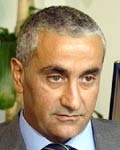
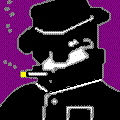



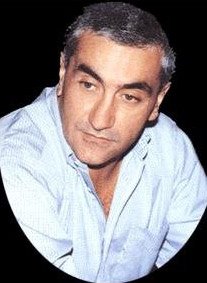

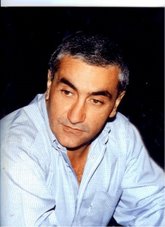
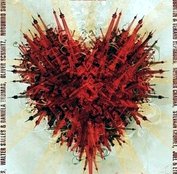
(e)SP_A0012_edited.jpg)



